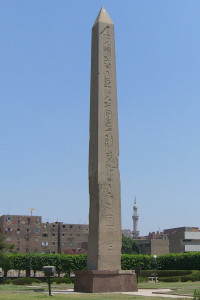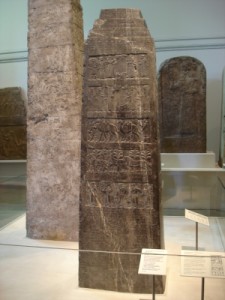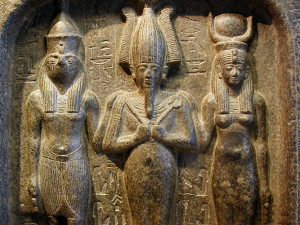Will the Holy Spirit Really Teach Us Everything?
 There are a great number of promises made in the Bible and many are quick to co-opt them when they want to make claims, prove a point, or supplement their own pet doctrines – but Biblical promises mean nothing out of context. A promise to one individual is not necessarily universal in nature or in other words, we can’t just go and steal someone else’s promises.
There are a great number of promises made in the Bible and many are quick to co-opt them when they want to make claims, prove a point, or supplement their own pet doctrines – but Biblical promises mean nothing out of context. A promise to one individual is not necessarily universal in nature or in other words, we can’t just go and steal someone else’s promises.
Abraham was given some directives that applied specifically to himself, as well as promises that applied only to specific lines of his offspring, either natural or grafted in (adopted). David and Aaron likewise received promises reserved for their lines only! Yet other promises in scripture are between specific individuals – for instance, from Yeshua to the Twelve, or from Paul to Timothy! Sadly, co-opted and removed out of time and context, there are many who use them to bolster their individual desires for blessing, to claim blessed status or to name and claim whatever it is they think they deserve – promises meant for other people or groups of people collectively!
Take for instance the promises of God towards the Nation of Israel that as long as it (the Nation as a whole) was faithful, they would suffer none of the diseases of the Egyptians, or experience barrenness, or poverty, etc. Well despite individual faithfulness, we see good people suffering because of the unrighteousness of the Nation as a whole – there was barrenness, disease, famine and poverty that impacted both the righteous and the unrighteous. The faithful Israelites couldn’t just name and claim the promise – because the promise was conditional based upon their national faithfulness.
But I have seen incredibly fertile couples who are not financially independent mocking wealthy barren couples – saying that the barrenness is a sign of “unrepentant sin.” But wait – the people with a bunch of kids are borrowers and not lenders, so why did they assume that they were the blessed when borrowing is also a sign of being cursed for unfaithfulness? Hypocrisy? Maybe, or maybe just ignorance and blindness towards the legitimacy of the blessings of others. Truth is, here in exile, as a part of an unfaithful Body of believers – we all suffer the effects of the Biblical curses, but sometimes we get the blessings – and that is a wonderful display of mercy, but in a world where even the evil get those same blessings we need to proceed with caution before attributing them to our “excellent” characters or faithful walks.
One of the most egregiously stolen promises is found in John 14 – during a private conversation between Yeshua (Jesus) and the eleven remaining disciples. It is not spoken to the world, but to his select students:
25 “These things I have spoken to you while abiding with you. 26 But the Helper, the Holy Spirit, whom the Father will send in My name, He will teach you all things, and bring to your remembrance all that I said to you.
We see a few very specific things tied together.
1. Yeshua reminds them of things spoken personally, to them, the eleven.
2. Yeshua promises that the Spirit will teach them personally all things (that the Spirit will do away with their confusion in the wake of what is about to happen, preparing them to go forth with the Gospel).
3. Yeshua promises that the Spirit will cause them to remember what Yeshua spoke personally to them, as a way of bringing about #2.
This is not a promise to the world and yet we hear people loudly claiming that the Holy Spirit will teach them all things whatsoever. And what is the fruit of that misappropriated promise? A Body of Believers who often attributed every flash of “inspiration” to be Holy Spirit inspired – resulting in doctrines based on nothing more than opinion and often flying directly in the face of what is written. I have encountered people who tell me that they know the true pronunciation of the Name because they heard it in a dream, but I know many people who have heard many pronunciations in dreams. I chalk it up not to a massive deception in everyone who hears the name spoken every way except “my way,” but instead to YHVH approaching us according to our understanding – resulting in our hearing, in the midst of the dream, the Name we expect to hear. I don’t discount the dream, but I do discount the hearing of a pronunciation in the dream to be authoritative or a sign of being particularly anointed.
So this is a short song I wrote about this phenomenon: “Holy Spirit, gonna teach me EVERYTHING, so I am right about EVERYTHING, and you don’t got the Spirit, because we DISAGREE.”
Yes, that was sort of rude, but when we claim that our understanding is according to the Spirit, and someone else claims the same thing while believing something else – well we are both using the “Holy Spirit Seal of Approval” to bolster our doctrines, and both cannot be right. I don’t know about you, but I have been pretty darned sure in the past that the “Spirit” was teaching me some stuff that ended up being vain imagination. I am hoping that it didn’t amount to blaspheming the Spirit – and nowadays I just don’t do that anymore. It isn’t the job of the Spirit to back me up in arguments.
So let’s go to I John 2
26 These things I have written to you concerning those who are trying to deceive you. 27 As for you, the anointing which you received from Him abides in you, and you have no need for anyone to teach you; but as His anointing teaches you about all things, and is true and is not a lie, and just as it has taught you, you abide in Him.
28 Now, little children, abide in Him, so that when He appears, we may have confidence and not shrink away from Him in shame at His coming. 29 If you know that He is righteous, you know that everyone also who practices righteousness is born of Him.
People like to use this one to say that no one needs any teachers and that the anointing really will teach us all things. If that was John’s meaning, then why write at all? Why not send a letter saying, “Well, you know, just wanted to say hi because you already know everything.”
Look at verse 27 because here is the often overlooked point, “just as it has taught you, you abide in Him.”
I John is all about living together as a Body in love and respect and unity, and about not being drawn away after deceivers. It is about loving in the face of hatred and remaining faithful to the commandments and to the testimony of Messiah. Those are indeed the things that the Spirit endeavors to teach everyone whose heart is not hardened with pride.
It is not the job of the Holy Spirit to reveal the Scriptures to people who don’t read them, nor context to the people who don’t study it. It won’t teach Hebrew and Greek to people who aren’t taking classes (believe me, I’ve tried). The Holy Spirit teaches us how to develop the fruit of the Spirit which is to be had in learning to humbly abide in Him, with each other.
(Edit: A facebook friend brought up John 16 – is it about the Holy Spirit teaching us to obey the commandments – so let me cover that as well –
13 However, when He, the Spirit of truth, has come, He will guide you into all truth; for He will not speak on His own authority, but whatever He hears He will speak; and He will tell you things to come.
Here is my response: Okay, so He is specifically speaking to eleven Torah observant Jews about the Spirit telling them what is to come, in context, and along with the next verse, will glorify Yeshua. In the previous verse, Yeshua declares that it will be things they could not bear to hear yet, and since we know that Yeshua taught Torah and preached the commandments, that this is going to be specifically limited to instructions to those disciples – teaching them things they cannot yet understand, things that are to come, and the glorification of Yeshua.)




